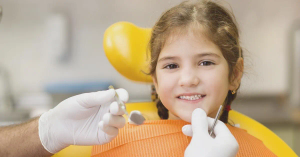Adolescence is a time of rapid growth and development, and nutrition is vital during this time. Understanding teenagers' specific health needs can help guide their dietary choices. An optimal adolescent diet not only supports physical health but also enhances cognitive function and emotional well-being. In this blog, we will explore the top ten nutritional needs for teenagers, ensuring they receive all the essential nutrients required for a healthy and balanced lifestyle.
Top ten nutritional needs for teenagers
Caloric Intake
During adolescence, the body requires significantly more calories than at other life stages due to growth spurts. Boys typically need about 2,800 calories per day, while girls require around 2,200 calories. This increased caloric demand is essential for supporting the energy levels required for daily activities and growth.
Protein
It is vital for muscle development and overall growth. Adolescents should aim to include a source of protein in every meal and snack. Recommended intake depends upon the age and sex, but generally falls between 10-35% of total caloric intake. Lean meats like chicken and fish, beans, and dairy stuff like milk and yogurt are great sources of protein.
Carbohydrates
These are the primary energy sources for active teens. A balanced adolescent diet should consist of 45-65% carbohydrates, focusing on complex carbs such as whole grains, fruits, and vegetables. These foods not only provide energy but also essential nutrients and fiber.
Healthy Fats
These are necessary for hormone production and nutrient absorption. Adolescents should aim for fats to comprise about 25-35% of their total caloric intake, prioritizing unsaturated fats found in nuts, seeds, avocados, and olive oil. Limiting saturated fats is crucial to prevent long-term health issues.
Iron
It is particularly important for teenage girls due to menstruation and for boys due to muscle growth. It's recommended that the daily intake be 11 mg for boys and 15 mg for girls. Foods rich in iron include red meat, poultry, beans, lentils, and fortified cereals. Pairing iron-rich foods with vitamin C sources can enhance iron absorption.
Calcium
Calcium supports bone health during this critical growth period. Adolescents need about 1,300 mg of calcium daily. Dairy products like milk, yogurt, and cheese are excellent sources; however, alternatives such as fortified plant-based milk can also meet calcium needs.
Vitamin D
It plays a huge role in calcium absorption and bone health. Teens should aim for at least 600 IU per day. Even though sunlight exposure is a natural source of vitamin D, fortified foods like milk and cereals can help meet daily requirements.
Fiber
Sufficient fiber intake supports digestive health and helps maintain a healthy weight. Teenagers should consume between 25-31 grams of fiber daily. Whole grains, fruits, vegetables, legumes, and nuts are excellent fiber sources that also contribute to overall nutrient intake.
Vitamins and Minerals
A well-rounded adolescent diet should include various vitamins and minerals essential for overall health. Key nutrients often lacking in teen diets include zinc and B vitamins. A diet including fruits, vegetables, whole grains, lean proteins, and dairy can help ensure adequate vitamin and mineral intake.
Hydration
Staying hydrated is important for sustaining energy levels and cognitive function. Teens should drink plenty of water throughout the day—aiming for at least six to eight glasses. While flavored waters or sugary drinks can be tempting, they often contribute empty calories without nutritional benefits.
Practical Tips for Teenagers:
- Eat a balanced diet: It includes a variety of foods from all food groups.
- Limit processed foods: Opt for whole, unprocessed foods whenever possible.
- Listen to your body: Pay attention to hunger and fullness cues.
- Stay hydrated: Try to consume lots of water throughout your day.
- Be mindful of portion sizes: Avoid overeating.
- Seek professional guidance: If you have worries with your diet or nutrition, consult a registered dietitian.
Conclusion
Navigating the complexities of adolescent nutrition can be challenging due to various factors such as peer influence and busy schedules. However, understanding these ten nutritional needs can help teenagers make better food choices that support their health needs during this critical stage of life.








